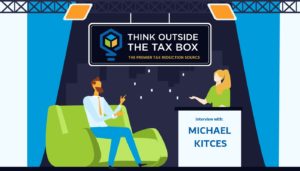The basic concept of the “backdoor Roth IRA contribution” is relatively straightforward. Contributing directly to a Roth IRA is restricted for higher-income individuals; once a married couple has an AGI in excess of $193,000 (or $131,000 for an individual), the maximum contribution limit to a Roth IRA reduces to zero. However, anyone with earned income can contribute to an IRA, regardless of how high their income is; at worst, higher income levels may limit the deductibility of that IRA contribution (for those who are an active participant in an employer retirement plan), but not the ability to make the IRA contribution.
In addition, under the Tax Increase Prevention and Reconciliation Act of 2005 (TIPRA), there have been no income limits on Roth conversions of traditional IRAs since 2010. As a result, anyone who has funds in a traditional IRA, whether originally deductible or not, is eligible to do a Roth conversion. In other words, while income limits remain on Roth contributions, there are no income limits for a Roth conversion.














